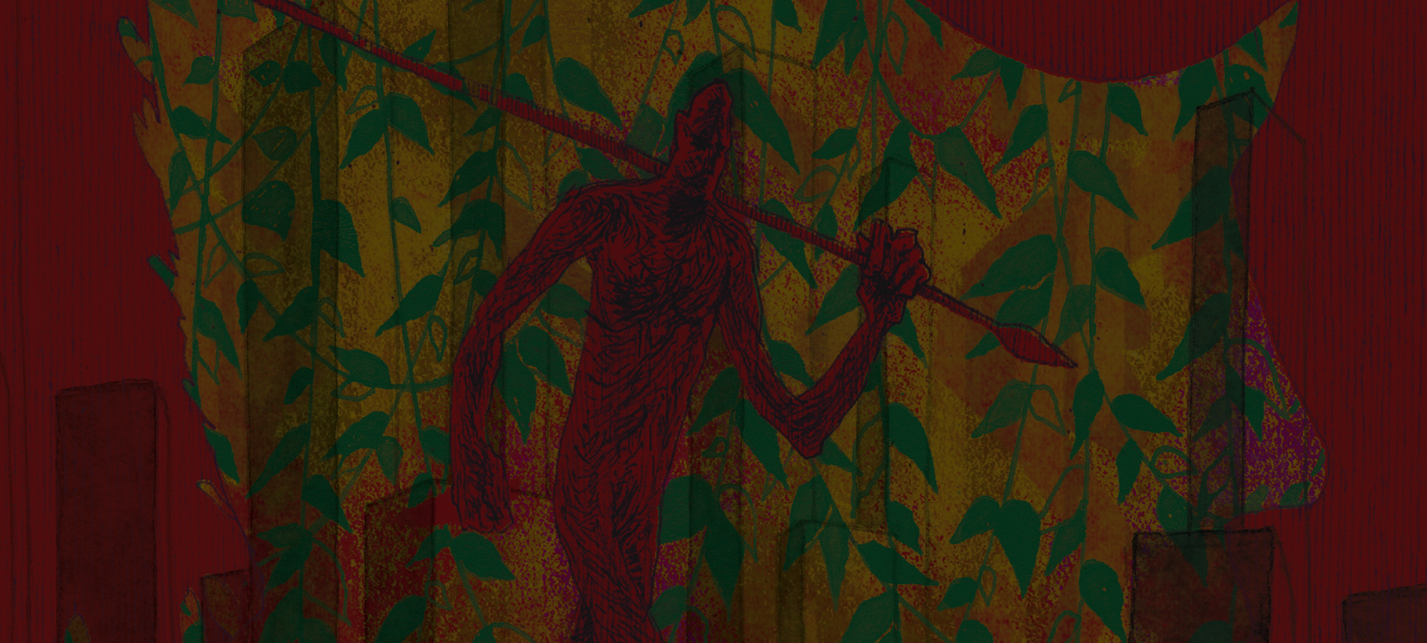‘Shikari’ by Yashwant Chittal is set in the concrete jungles of Mumbai and weaves together the high-stake conspiracies of the corporate world. Through Nagappa’s story Chittal reveals a fiercely competitive arena where Man’s primordial instincts surface, and the line between the hunter and the hunted is often blurred.
Here’s an excerpt from the book.
As the situation he found himself in began to make some sense to Nagappa, he recalled K, the hero of Kafka’s novel The Trial that he had read years ago. Just like it had happened with K, somebody must be spreading false rumours about him. Or why would this bizarre order from the personnel and administration manager come yesterday morning, when he was getting ready to go to work? The thought unnerved him.
You have been suspended with immediate effect due to serious charges against you. You will be informed of the charges at the earliest. You have been ordered not to attend the office till such time
that we inform you about them. The order was very clear. And it had come with a piece of advice: With the view that you are not adversely affected in any way in the event of the charges being proved false, it is in your interest to apply for a month’s leave immediately.
Nagappa had sent in his leave application. But he now faced the predicament of having to hide from others the real reason for his forced leave. He wracked his brains for a plausible explanation he could give, but couldn’t think of any. And then there were these ‘charges’. The more he tried to think what they could possibly be, the more intriguing the whole thing appeared to him.
For a moment, he wondered if it was all a terrible mistake. He couldn’t somehow bring himself to believe this was really happening to him, because he was to leave for America in a couple of months for higher training—something he had dreamt of for years. And now this, when he was eagerly waiting for the day.
A thought occurred to him: Was being selected for the training the very reason for this sudden turn of events? As time passed, he became convinced that was the case. What had started as a vague suspicion began to appear like the truth. This meant Phiroz still harboured that old hatred towards him. This’s surely part of some vicious plot hatched by that Machiavellian manipulator . . . that evil politicking bastard . . . the son of a bitch Number One! Nagappa thought. Things would become clearer if he could somehow find out what the charges framed against him were. Now he could do nothing but wait for further information from the personnel and administration manager.
He found the wait unbearable. He became suddenly and acutely aware that he had nothing to do. He shuddered. The question of what to do with his time had never bothered him before. But now, empty hours stretched before him, directionless. He recalled reading in a book on psychology that one of the greatest problems the human mind finds difficult to grapple with is the structuring of time.
Suppressing the waves of amorphous panic that threatened to engulf him, he tried to define it and give it some shape. But the more he tried, the more it seemed to gain an upper hand. He shook inwardly, uncontrollably. He spent the day analysing each passing mood and thought and recording it. And his chronicling continued:
Comment 1: This is the second day of my forced leave. The thought that came to me as I woke up: If I keep thinking about this problem, I might either end up in a mental asylum or committing suicide. Both are ways of running away from the situation—attempts at alienating myself from the world.
Is the constant act of analysing the meaning of life a sign of a profound inner search or of losing faith in life—in one’s very existence? Isn’t embracing life with enthusiasm and living with a sense of commitment a natural instinct? Isn’t it the very wellspring of life’s process?
Why does this question, that doesn’t seem to bother millions of other living beings, constantly trouble me? Maybe it’s not because of my philosophical bent of mind, which I secretly take pride in, but because I have no zest for life. I think the very wellspring that energizes my being has run dry. Maybe it’s meaningless to search for the meaning of life. How can you search for something that doesn’t exist? This so-called ‘meaning’ is something we’ve invented. And then, how is creativity possible when there is no zest for life? How can the creative impulse spring in this arid desert?

Tag: franz kafka
Kafka on Screen: 5 Must-Watch Films Inspired by the Stories of Franz Kafka
Literary legend, Franz Kafka, has left generations of readers astounded with his fantastical stories, a style that has received its own special name – ‘Kafkaesque’. Alienation, existentialism, absurdity, all of it comes together in Kafka’s works to form a heady, surreal cocktail of words and imageries.
Several filmmakers have been inspired by Kafka’s stories, thereby creating some of the most visually stunning and eccentric works of cinema known to the world. Here are five outstanding adaptations of Kafka’s works one must watch:
The Trial (1962)

Based on Franz Kafka’s novel of the same name, this 1962 film by director Orson Welles follows the story of a bureaucrat who is arrested and persecuted for a crime that is neither mentioned to the protagonist nor to the viewer. Not only is the film the filmmaker’s personal favourite, but over the years has also been touted as a cinematic masterpiece by critics.
Franz Kafka’s It’s a Wonderful Life (1993)

Peter Capaldi’s Academy award winning short-film, Franz Kafka’s It’s a Wonderful Life, begins where writer Kafka started his deliciously dark tale of a man’s metamorphosis into an insect — on a piece of paper. The film explores the frustration of a writer confronting a creative block, as interruptions from the world around keep pouring in, only to make him wonder what it is that his protagonist transforms into when he wakes up. A banana? A kangaroo?
Franz Kafka’s A Country Doctor (2007)

Multiple award-winning anime short-film, Koji Yamamura’s Franz Kafka’s A Country Doctor, is an interpretation of Kafka’s short story by the same name. A bizarre chain of events unfolds when a country doctor visits a young patient in the middle of the night. Strange, unearthly horses, distorted houses and people, a young boy who oscillates between death and the will to die, Yamamura’s beautifully dark visuals married to Kafka’s haunting story leaves the audience questioning and wanting more.
The Metamorphosis of Mr. Samsa (1978)

What can be better than to watch your favourite story come alive in animation? The Metamorphosis of Mr. Samsa by Caroline Leaf is an animated short-film, using beach sand on a piece of glass. Fluid, shadowy images capturing the nightmarish nature of the original story, Leaf’s film is a stunning visual rendition of the most renowned work of Franz Kafka.
Watermelon Man (1970)

Melvin Van-Peeble’s classic, Watermelon Man, is based on the premise of Franz Kafka’s Metamorphosis. When ‘white insurance salesman’, Jeff Berger, wakes up to find himself in a black man’s body, (much like Kafka’s Gregor Samsa finds himself in a beetle’s body when he wakes up) all hell breaks loose as he initially tries to scrub off his dark skin in many creative ways. After finally accepting his reality of having transformed into a black man, Berger ironically finds himself in situations which he looked down upon as a man of white descent.
Tell us which ‘Kafkaeqsue’ film is your favourite.








